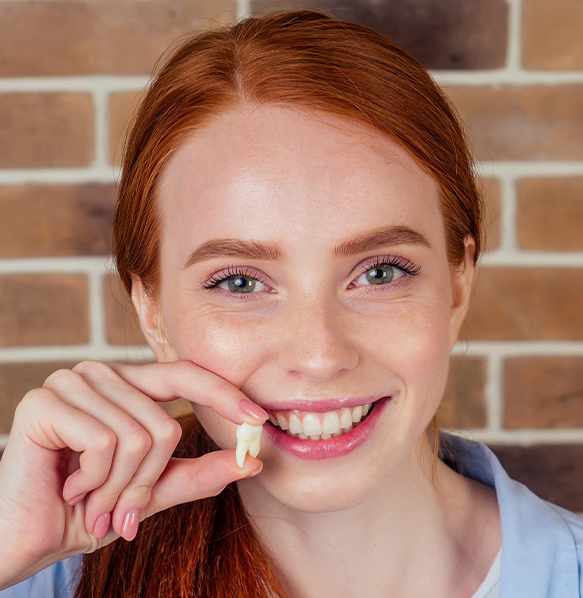1084 Main Street Holden, MA 01520
Tooth Extractions

When is Extraction Necessary?
Wisdom Teeth Issues: These back molars often emerge later in life, sometimes causing overcrowding, impaction, or misalignment, which may lead to pain or infection.
Severely Damaged Teeth: Teeth with extensive decay, trauma, or failed treatments may need removal if they cannot be restored.
Cracked or Fractured Teeth: If a tooth’s crack extends deep, affecting the inner structure, extraction might be necessary to prevent complications.
Primary Teeth Concerns: Occasionally, a baby tooth does not fall out naturally, preventing the proper emergence of a permanent tooth, requiring extraction.
Why Might Removal Be Recommended?
Alignment Issues: Overcrowded or impacted teeth can affect your bite and jaw function.
Infections: Deep decay or fractures can create infection risks, potentially impacting overall health.
Persistent Pain: Extracting a severely damaged tooth can provide long-term relief from discomfort.
Preparations for Replacements: In some cases, removal is necessary to make room for a restorative solution.
What to Expect During the Process
Consultation: A thorough examination, possibly including X-rays, to assess the need for extraction.
Anesthesia Options: Various sedation choices are available to ensure a pain-free experience.
Extraction Procedure: The tooth is gently loosened and removed. Stitches may be used depending on the situation.
Post-Procedure Care: Clear aftercare instructions will be provided to support a smooth recovery.
Recovery After an Extraction
Healing after an extraction is typically straightforward. Here’s what to expect:
Swelling: Some swelling is common in the first few days and can be reduced with cold compresses.
Discomfort Management: Pain medication, as prescribed or over-the-counter options, can help relieve soreness.
Bleeding Control: Minor bleeding is normal; using gauze can help manage it.
Dietary Adjustments: Soft foods such as yogurt, mashed potatoes, and soups are recommended initially.
Oral Care Tips: Gentle brushing and saltwater rinses can help maintain hygiene while avoiding irritation.
Rest and Recovery: Taking it easy for the first 24 hours aids in healing.